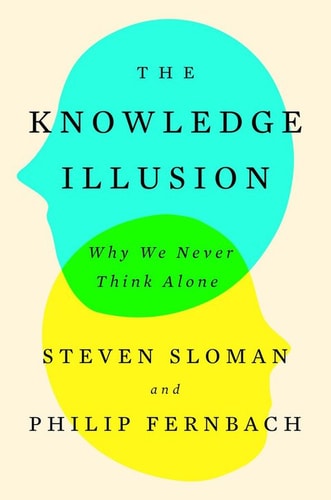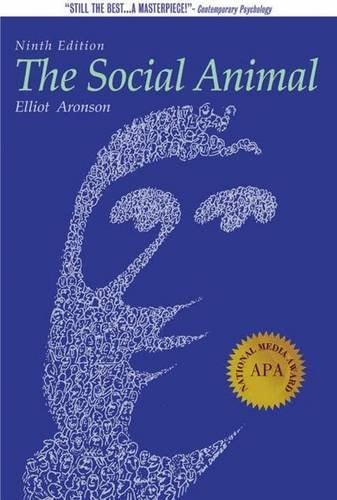This reading guide will help you explore the psychological, social, and neurological factors that contribute to defensive reactions when one's beliefs or ideologies are questioned. The books selected cover foundational theories and modern insights into belief systems, cognitive biases, identity, and the neuroscience of emotion.
Reading Order and Why:
-
"The Righteous Mind: Why Good People Are Divided by Politics and Religion" by Jonathan Haidt
- Why Start Here? This book provides a framework for understanding moral psychology and why people hold different moral values that often conflict. Haidt's moral foundations theory explains the intuitive roots of ideological divides and why discussions about politics and religion can trigger defensive responses.
- Learning Outcomes:
- What are the moral foundations that shape human values?
- How do these foundations differ across political and cultural groups?
- Why do moral intuitions often precede rational thought in shaping beliefs?
-
"Mistakes Were Made (But Not by Me): Why We Justify Foolish Beliefs, Bad Decisions, and Hurtful Acts" by Carol Tavris and Elliot Aronson
- Why Second? This book delves into the psychology of cognitive dissonance and self-justification. It helps explain why people cling to their beliefs even in the face of contradictory evidence and why questioning deeply held beliefs can provoke strong defensive reactions.
- Learning Outcomes:
- What is cognitive dissonance, and how does it affect decision-making?
- How do people justify their beliefs to maintain self-esteem?
- What role does self-justification play in ideological rigidity?
-
"Thinking, Fast and Slow" by Daniel Kahneman
- Why Third? Kahneman's book provides insights into how our brains process information through two distinct modes of thinking: fast (intuitive) and slow (deliberative). Understanding these modes helps explain why people are prone to cognitive biases that reinforce their existing beliefs.
- Learning Outcomes:
- What are the differences between intuitive (System 1) and deliberative (System 2) thinking?
- How do cognitive biases influence our perceptions and judgments?
- Why are people resistant to changing their beliefs even when presented with new information?
-
"The Social Animal" by Elliot Aronson
- Why Fourth? This classic work in social psychology explores how social forces shape behavior, attitudes, and beliefs. It provides insights into conformity, group dynamics, and how social identity influences reactions to ideological challenges.
- Learning Outcomes:
- How do social influences shape individual behavior and beliefs?
- What role does social identity play in defending ideological positions?
- How do group dynamics affect responses to ideological threats?
-
"Identity: The Demand for Dignity and the Politics of Resentment" by Francis Fukuyama
- Why Fifth? Fukuyama’s book discusses how identity politics have shaped contemporary ideological divides. It examines the role of dignity, recognition, and resentment in shaping group identities, providing insights into why ideological challenges can feel like personal attacks.
- Learning Outcomes:
- What is the relationship between identity and ideology?
- How do demands for recognition shape social and political movements?
- Why do challenges to an ideological position often evoke strong emotional responses?
-
"Influence: The Psychology of Persuasion" by Robert Cialdini
- Why Sixth? Understanding persuasion techniques helps to explain why some ideological arguments are more convincing than others and why people may resist certain messages even when they seem reasonable.
- Learning Outcomes:
- What principles of persuasion affect belief change?
- How do social proof and authority impact ideological adherence?
- Why do people use defensive strategies to resist persuasion?
-
"The Believing Brain: From Ghosts and Gods to Politics and Conspiracies" by Michael Shermer
- Why Seventh? This book explains how the brain constructs beliefs and then defends them. Shermer's approach combines neuroscience, psychology, and social science to explore how people form and cling to beliefs, including irrational or unsupported ones.
- Learning Outcomes:
- How does the brain form and reinforce beliefs?
- Why do people resist changing beliefs in the face of evidence?
- What neurological mechanisms are involved in belief defense?
-
"Behave: The Biology of Humans at Our Best and Worst" by Robert Sapolsky
- Why Eighth? Sapolsky explores the biological underpinnings of human behavior, including the role of hormones, neural pathways, and evolutionary influences. This provides a deeper understanding of the physiological responses involved when ideological beliefs are challenged.
- Learning Outcomes:
- What biological factors influence human behavior and beliefs?
- How do stress responses affect reactions to ideological threats?
- How do evolutionary pressures shape social and ideological behaviors?
-
"The Knowledge Illusion: Why We Never Think Alone" by Steven Sloman and Philip Fernbach
- Why Ninth? This book discusses how people overestimate their understanding of complex issues because they rely on shared knowledge within their communities. It explains why ideological beliefs can be resistant to change, as people are often unaware of the limitations of their own knowledge.
- Learning Outcomes:
- How does the "illusion of knowledge" influence belief persistence?
- Why do people feel confident in defending ideologies they don't fully understand?
- How can recognizing the limits of personal knowledge help foster open-mindedness?
-
"The Neuroscience of Emotion: A New Synthesis" by Ralph Adolphs and David J. Anderson
- Why Tenth? This book provides a comprehensive look at the neurological basis of emotion, which is crucial for understanding why emotional reactions to ideological challenges can be so intense. It integrates insights from neuroscience and psychology to explain how emotions influence belief formation and defense.
- Learning Outcomes:
- What are the neurological mechanisms behind emotional responses to ideological challenges?
- How do emotions interact with cognition in shaping beliefs?
- What role do emotional processes play in ideological conflicts?
Summary of the Guide's Structure:
- Start with moral psychology and cognitive dissonance to understand why people defend beliefs.
- Explore the cognitive processes behind fast and slow thinking, and how social forces shape ideology.
- Examine identity's role in beliefs and the principles of persuasion that affect ideological stances.
- Delve into the neuroscience of belief to understand how the brain forms and defends ideologies.
- Finish with biological and neurological perspectives on emotional responses to ideological threats.









